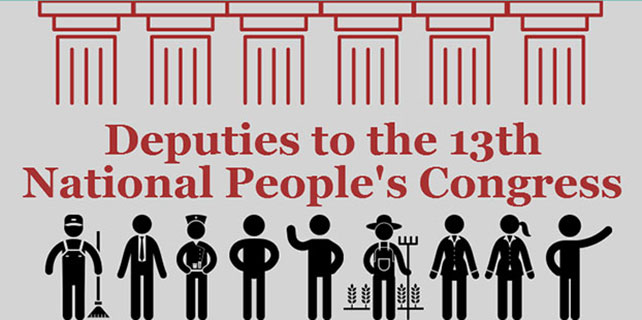China's private investment picks up
BEIJING - Private investment in Northeast China's Liaoning province, which saw a sharp decline in the first half of 2016, has rebounded to account for over 66 percent of the province's full-year fixed asset investment, according to official data.
The rebound reflected a pick-up in private investment nationwide.
China's private investment hit an eleven-month high of over 2.49 trillion yuan ($362 billion) for the first two months of 2017, up 6.7 percent year on year, compared with 3.2 percent growth for 2016.
"Private investment will keep growing this year," said Miao Wei, minister of industry and information technology, at the China Development Forum that just concluded in Beijing.
His judgement is supported by more local data for the Jan-Feb period.
Private investment in eastern China's Hangzhou soared 26 percent to 29.2 billion yuan, and the growth rate was 32 percentage points higher than the same period of last year. Private investment in Central China's Hubei province rose 8 percent to make up nearly 62 percent of the province's total investment.
"The growth in private investment lags behind that of total investment due to multiple factors such as economic cycles and systemic defects," said Li Wei, head of the Development Research Center of the State Council.
"The bottleneck is access restrictions, especially in infrastructure, energy and other fields," Li said, adding that authorities should relax restrictions as much as possible, while improving the supervision system.
Since 2016, China has issued a slew of policies and measures to push private investment forward, with policies related to securing investment yields and expanding market access given priority.
In 2017, more policies were introduced to invigorate investment and broaden investment fields.
The nation has announced guidelines to encourage private investment in a wide range of sectors including elderly care, education, culture and sports.
Restrictions on private investment will be eased and procedures for private businesses will be streamlined, and financing channels for public service projects will be broadened to include the bond market, collateral financing and industrial investment funds, according to a document released by the General Office of the State Council last week.
Private investors will be given favorable policies in land use and taxation and market supervision will be improved, according to the document.
Expert said the structure of private investment still needs to be optimized, and more capital should be guided into the real economy and industries such as manufacturing and infrastructure.
Miao also stressed that social capital should no longer be heavily inclined to the virtual economy.
"On the one hand, the manufacturing sector is thirsty for investment, and on the other hand, there is idle capital that cannot find channels to invest," he said.
"It is essential to break down barriers existing in private investment, entitle private investors with fair status, actually implement the encouraging and supporting policies, and lead private capital to participate in the transformation and upgrading of the manufacturing industry," Miao added.
















